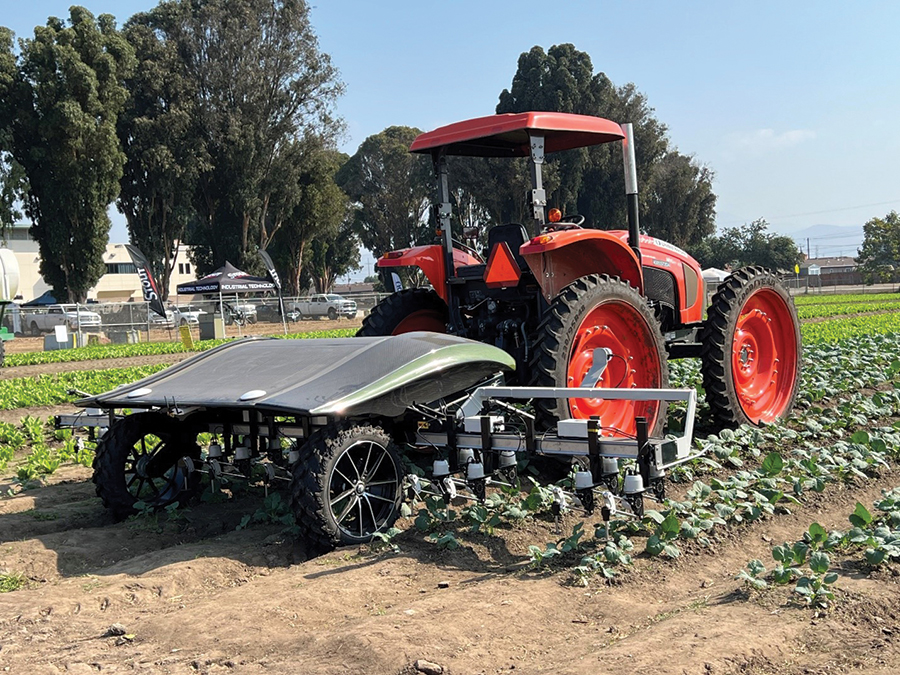Mar 27, 2024Veg connections: Tips on choosing robotics
Weeds threaten the $79 billion specialty crop industry in the U.S. by reducing yields, harboring pests and pathogens and impeding harvest efforts. The evolution of herbicide resistance, a changing regulatory environment and shifting perceptions about pesticides can also affect herbicide selection and use.
Given the constraints, many companies have entered the agricultural technology sector with the intention of developing and marketing novel tools to provide effective weed control while reducing or eliminating the need for synthetic herbicides and extensive hand weeding crews. The types of technologies that are available or under development are diverse and include GPS-guided autonomous weeders, vision-guided cultivators, targeted sprayers and laser weeders.

The second FIRA USA AgTech event was Sept. 19-21, 2023, in Salinas, California. Many presentations mentioned the drivers of adoption as well as the barriers to widespread implementation. While not comprehensive, several factors should be considered.
Costs
The units can range from tens of thousands of dollars to more than $1 million, and parts and services must be considered. Subscription fees for software and data access should also be considered. Onboard software will likely have to be updated on a regular basis and some parts may have to be changed on a frequent basis; thus make sure that technical support is included in the cost evaluation.
Determine if the technology will require changes to production systems and practices, such as the alteration of row spacing or planting density, which could require new equipment. Not all technology is available for purchase and some companies may make machinery available on a contract basis.
Adaptability and versatility
Many companies are developing their systems and actively operating in California, Arizona, Oregon and Washington. It’s important to remember that western and eastern U.S. farms differ greatly with respect to soil and terrain, weather patterns, field sizes and shapes, weed species, available capital and more.
How much does the equipment weigh? How long can it autonomously operate? How many acres can it cover in a day? Does the equipment have utility across multiple crops or is it specialized for a unique set of conditions? Ask if the technology has been evaluated in local conditions. If not, what needs to be done to ensure the tools can be integrated into your operation?
Infrastructure and labor
Are your cellular and internet services sufficient to support the needs of both current and future novel technology? If the equipment is autonomous, does your state have any laws requiring the presence of a user? Does your farming operation have personnel on staff with the needed mechanical, electronic and programming skills to operate and service new technology?
Steps before adopting novel technologies
Engage — repeatedly — with companies before deciding. Ask for demonstrations across production conditions and environments. Collect your own data about performance and crop safety.
Despite their engagement with the industry, technology companies may not fully understand specialty crop problems. Growers should work with industry partners to develop and refine tools. If feasible, consult with Extension specialists to integrate this knowledge into your decision process. Consider if you are a candidate for direct sales versus service contracts. If you want to own, have a team in place that is comfortable using and servicing the technology. This will likely require familiarity with mechanics, electronics, computer programming and data analysis.
Lynn M. Sosnoskie is an assistant professor of weed ecology and management for specialty crops at Cornell University. Thierry E. Besançon is associate professor and Extension weed science specialist for specialty crops at Rutgers University.














